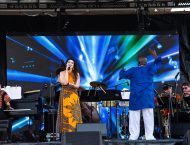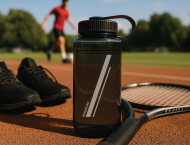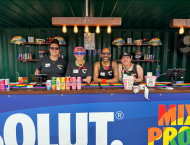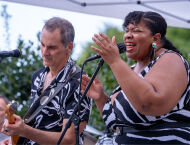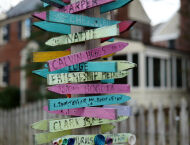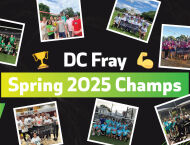Culture
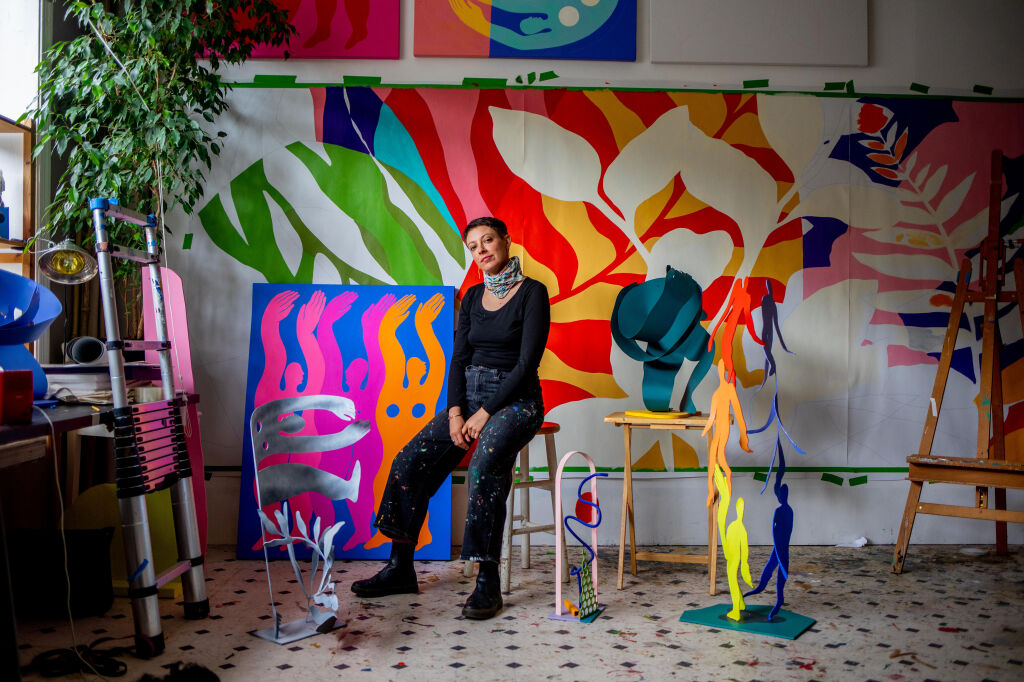 Rose Jaffe. Photo by Mariah Miranda.
Rose Jaffe. Photo by Mariah Miranda.
D.C. Muralist Rose Jaffe’s New Exhibit Uses Art to Heal
June 7, 2023 @ 1:00pm
Don’t miss the local artist’s show centered on the LGBTQIA+ community at The Corner at Whitman-Walker, now through June 18.
One of D.C.’s most prolific and established mural artists, Rose Jaffe, continues her personal practice with her first exhibition of the year, “Embodied: New Works,” set to open this weekend at The Corner at Whitman-Walker during the District’s official Pride weekend. The Corner was the entrance and lobby of the Whitman-Walker Clinic, which offered stigma-free care to LGBTQIA+ and HIV-positive community members during the HIV and AIDS epidemic. Now, the former lobby serves as an event and art gallery space for the community.
The exhibition is a follow-up to Jaffe’s “NATURAL CONNECTIONS,” which showed at Pyramid Atlantic Art Center in Hyattsville, Maryland in 2021. We caught up with Jaffe to hear about the significance of her exhibition venue, how she uses art as a tool for emotional processing and how her personal healing journey influences her work.
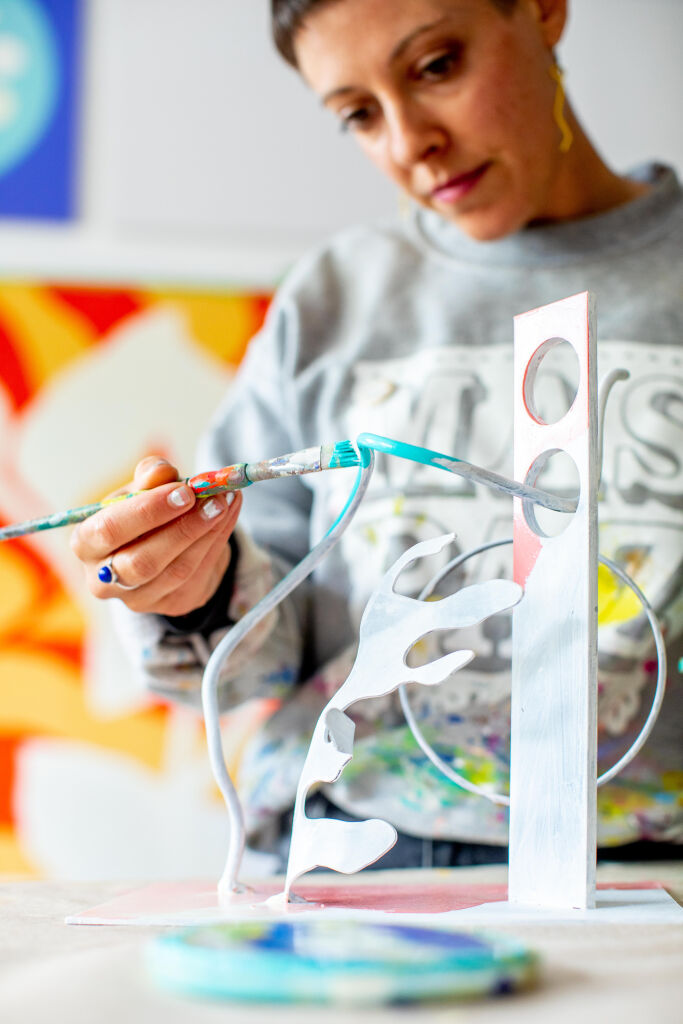
Rose Jaffe. Photo by Mariah Miranda.
District Fray: What is this body of work about for you?
Rose Jaffe: It’s about our collective connections with natural spaces and the healing it can provide us. Creating empathy and compassion for the natural world is a way for us to show up and be engaged, whether it’s climate justice on a large scale or smaller personal things. This is pretty tied to my own healing journey; finding connection and solace in nature is so important to me.
In January, I was writing and reflecting and I said, “I really want to do this next body of work.” And I thought, “NATURAL CONNECTIONS” is really about our connection to other people and nature. And this show is much more about our connection with ourselves.
In my healing journey, I was very disconnected with my physical body for so long. I got really sick in Southeast Asia and then my stomach was totally fucked up, and that took four to five more years to figure out.
I was going to tons of Western medicine doctors and really struggling with a lot of male doctors and people that just didn’t understand what’s going on with my body. This was all over a decade, and it’s a fragile thing for me to get to the point to talk about in part of the show. The journey of healing was so transformative. I was committed to not living in pain every day, saying, “I can’t continue to live life like this.” And that was the radical change that needed to happen. Coming out the other side of that has been just so — I don’t know, it’s hard to describe in words, which is why I make art to express through that.
Why choose Whitman-Walker as the space to debut this work?
I feel like there will be a natural presence of queerness. I don’t feel the need to put a rainbow anywhere, you know? My work is super open and I don’t need to spell it out anymore when the work is doing it on its own. With the attacks on LGBTQ and trans folks, it’s important for me to have resources at the show when folks are coming in because it will be a tighter weekend with Pride celebrations.
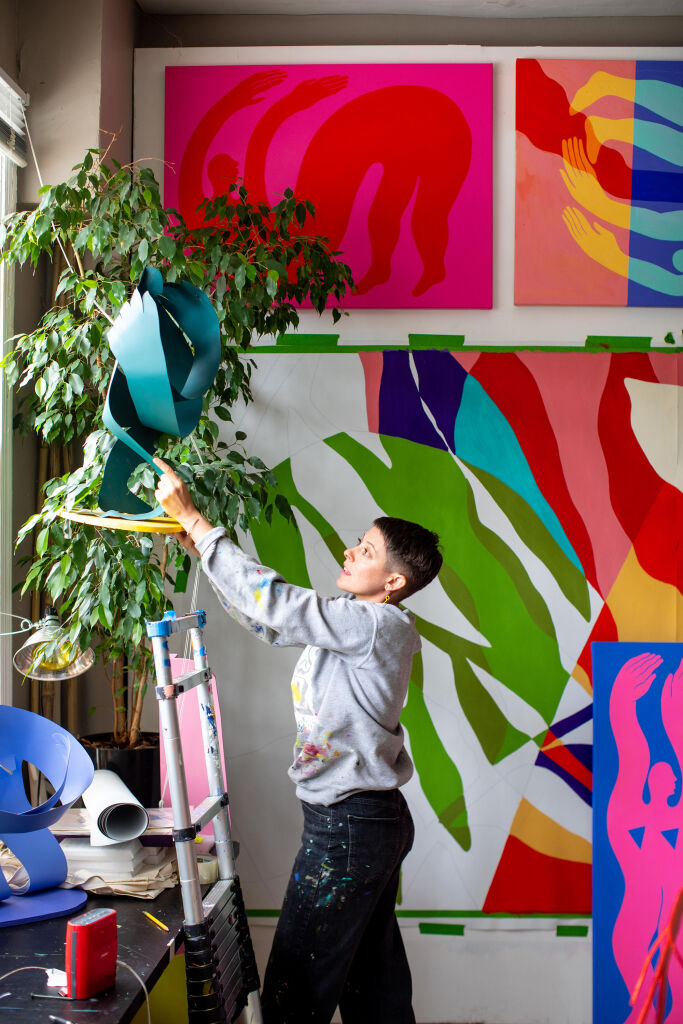
Rose Jaffe. Photo by Mariah Miranda.
What does your art practice mean to you?
I think as a society, we’re just consuming a lot of fucked up shit all the time. Not enough people have the tools, whether it’s making art, dance, poetry. It’s an exercise, an outlet, basically some type of release. A part of me is taking things in, and it’s an essential part of processing and release to have art as an outlet.
When it comes to healing, time doesn’t feel linear. You think, three years from now you’re healed, you’re fine, but then something triggers you — a smell or a sensation — and you’re back in it. Because your body remembers what it feels like.
The body is so resilient and amazing. I’m so proud of my body and my ability to do the work that needed to be done to change my situation and not through medicine. Lots of yoga, lots of meditation. Lots of reading, reflection and time in nature. Lots of time listening to my body, being like, “I need to sleep. I need to not do this.” The main thing was that I needed to decrease my stress, a main trigger for my chronic pain issues. And it took me a long time to figure that fucking thing out.
This show is a celebration of the power of what can happen when we listen, when we build that relationship with our body. Self-love is thrown around a lot, but that’s what it’s about, you know? It’s about understanding that I need to trust, listen to and love my body. And I think that’s where the most deep healing can happen. I found that love and non-judgment for myself.
Tell me more about the figures found in this series, but also in all of your work.
They’re not gendered bodies. They’re just a representation of the body. I think that people will see what they want, and I have very little control over it. To me, it’s more about finding love in our bodies and celebrating however they are.
I wanted to reference photos I have of dancers because I’m really inspired by how they are very connected to their physical bodies. I love that [in the images] they were all friends, so there was a lot of holding, connecting, being together. The show is really about those moments of “I got you,” a theme of togetherness.
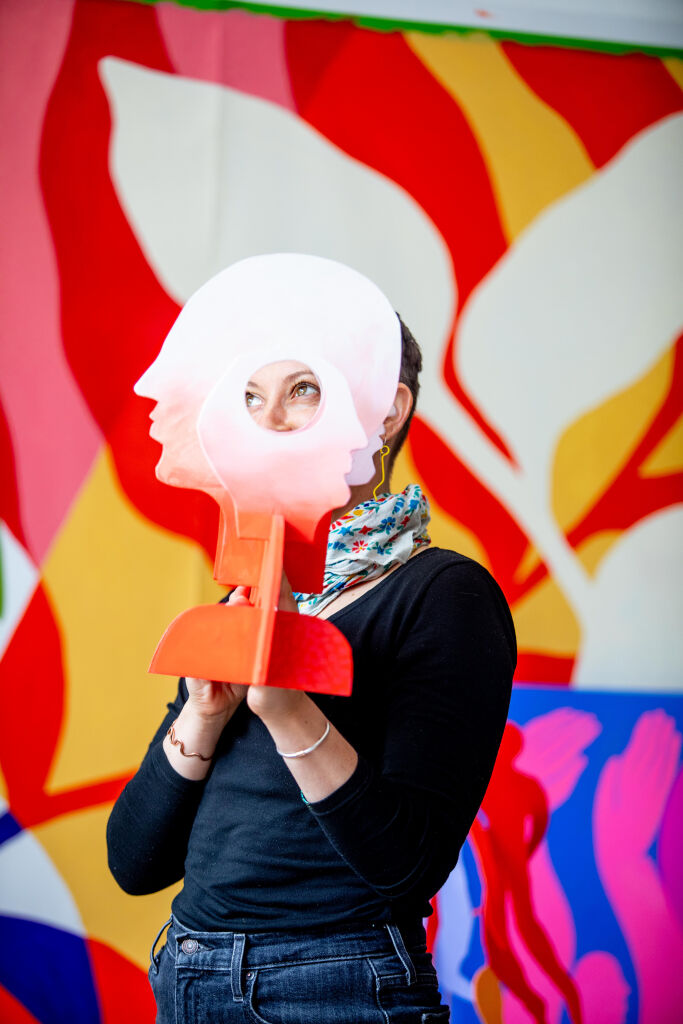
Rose Jaffe. Photo by Mariah Miranda.
The connection you have to this series is deeply personal. How do you feel about sharing the physical proof of your internal processing in a public space?
There’s plenty of artists that just make art for them and sharing the art isn’t a big piece of it. I’ve always loved sharing my work. It’s a big component of the making of the work for me. And so I’m really aware of the physical feeling people get when they look at my art when they’re in the space. I want people to feel like they can see themselves in these figures. That they come away feeling maybe inspired or happier, which I think is not a small thing for a lot of people.
My healing journey has been very personal and very solo. It was something I wanted to do by myself; it was a journey I needed to do for myself. It allowed me to exist in relationships in such a better way — all of my relationships. The relationship ultimately started with my relationship with myself to be like, “All right, let’s really get digging here and get in there.”
I have tools now that I’ve learned. I feel like I’m out of the brunt of the daily pain. It’s now a daily practice. And I think that the show is me coming out of the other side of that pain.
Jaffe’s newest exhibit, “Embodied: New Works,” will be on view at The Corner at Whitman-Walker June 9-18. An opening reception will take place June 9 at 6 p.m with a closing reception June 18 at 2 p.m. To learn more and RSVP, visit the exhibition event page.
Keep up with Jaffe online at rosejaffe.com and follow her on Instagram @rose_inks.
The Corner at Whitman-Walker: 1701 14th St. NW, DC; whitmanwalkerimpact.org // @whitmanwalker
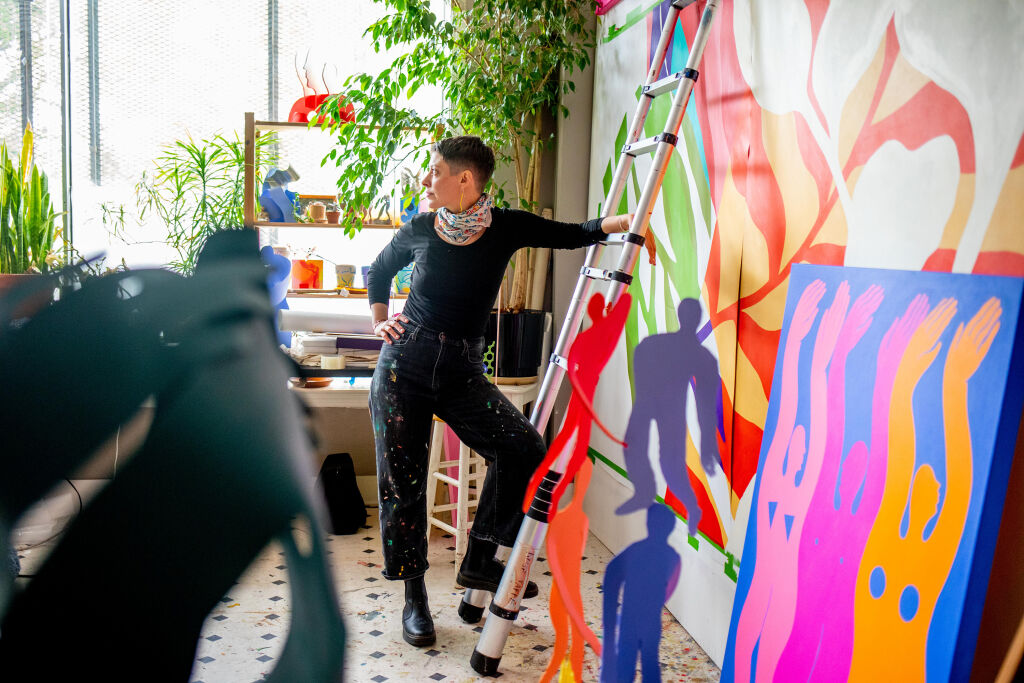
Rose Jaffe. Photo by Mariah Miranda.
Want to uncover D.C.’s creative side with art exhibits, networking opportunities and exclusive events? Become a member and support local journalism today.


